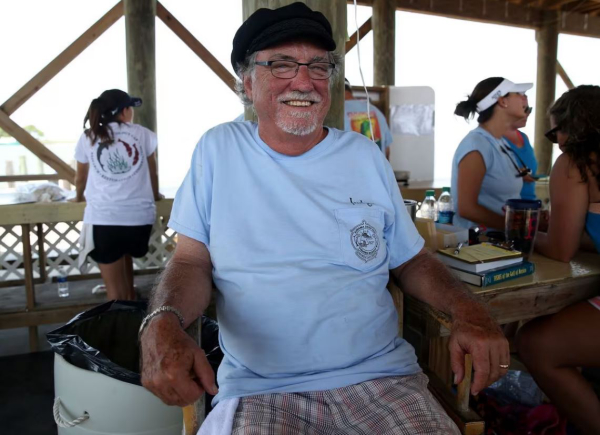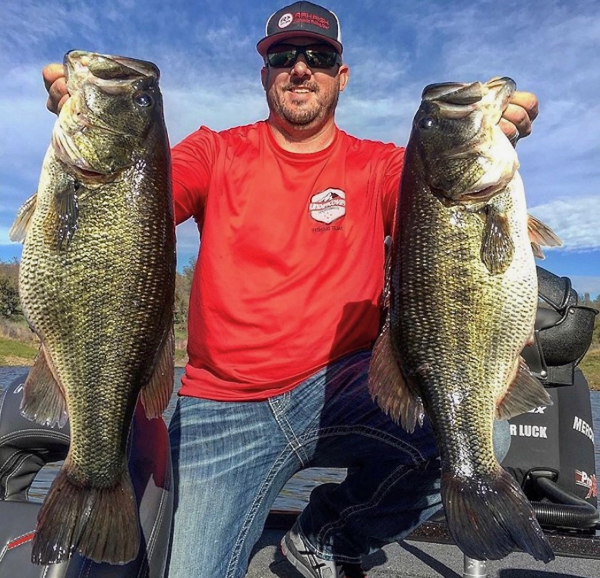
Mariners call a requiem or obituary “Eight Bells”, signifying the end of a watch.
That’s what the announcement of the death of Dr. Bob Shipp seems like for anglers, conservationists and fisheries specialists around the Gulf of Mexico this week.
Bob literally “wrote the book” on gulf fisheries. His “Fishes of the Gulf of Mexico” is on the desk of just about everybody who works in coastal fisheries or fishing between Key West and Brownsville, Texas.
It has surely been on mine, and is worn from frequent use—anything you want to know about any species that lives in the Gulf, Bob knew it well—and had probably caught it on hook and line as well as in research nets.
Bob always seemed like a fisherman who was expert in science, instead of a scientist who dabbled in fishing.
Per his obit, “Dr. Robert L. Shipp was a marine scientist and professor at the University of South Alabama who had a huge impact on public understanding of Gulf of Mexico fisheries, and who bridged the gap between the scientific community and the recreational fishing community.”
Bob passed away last week in Tampa, Fla., surrounded by his children, after a brief illness. He was 81.
Bob was the major domo at the Alabama Deep Sea Fishing Rodeo, where he established efforts to use the fish brought in as a source of solid scientific data. Bob could identify any fish you caught and could also give you its life history, in terms you could understand.
He will be missed, but his legacy carries on in his book.
You can get it here for about $20: https://www.chamblinbookmine.com/pages/books/95395/robert-l-shipp/dr-bob-shipps-guide-to-fishes-of-the-gulf-of-mexico

Big Bass Time Across the South
Most of us think the time for big bass is about when the dogwoods bloom across the South, because that’s when the fish show up on the spawning beds, starting first in Florida, then lower Georgia/Alabama/Mississippi/Louisiana and Texas and then on up into Arkansas, Tennessee, Virginia and the Carolinas.
But many of the biggest fish caught each year are caught in February, when the fish are in what biologists call the pre-spawn mode. This is when they start feeding heavily and packing on weight. The 9-pounders turn into 10 and 11 pounders, all females, of course, and the fish are very ready to grab an artificial lure.
Throwing a big crankbait or rattlebait on the routes into spawning bays and flats is the tactic that works most often in most waters, though in Florida many anglers score fishing jumbo wild shiners, up to 10 inches long, on tackle that would tame a tarpon. Large plastic worms are also popular in most Florida waters. Heavy jigs also account for some very large fish.
Across the Mid-South, the bass are most often in 10 to 20 foot depths along creek channels, island cuts and the like, but some are also still hanging around the shad schools. They also tend to stack up around cover on the routes to shallow water—brush piles, submerged bridges and docks sometimes are magnets. A few years back, BASS pro Randy Howell won the Classic when he found big bass massed around Spring Creek causeway bridge on Lake Guntersville, and more recently another Classic on Guntersville went to Hank Cherry fishing the Highway 69 causeway, also bisected by a bridge where spawners pass.
Spotted bass, found in many clear water lakes, like the same sort of cover but are typically found deeper, at 15 feet and more pre-spawn, and usually spawn on gravel or rock at depths over 5 feet.
A couple days of calm, sunny weather can really turn on this bite, while a frosty morning or two can slow it, but the big gals will stay in the same zipcode, ready to bite as the water warms.
Where ever you go looking for bass over the next month or two, your chances are probably better than they will be the rest of the year for landing that lifetime trophy.
— By Frank Sargeant
Frankmako1@gmail.com